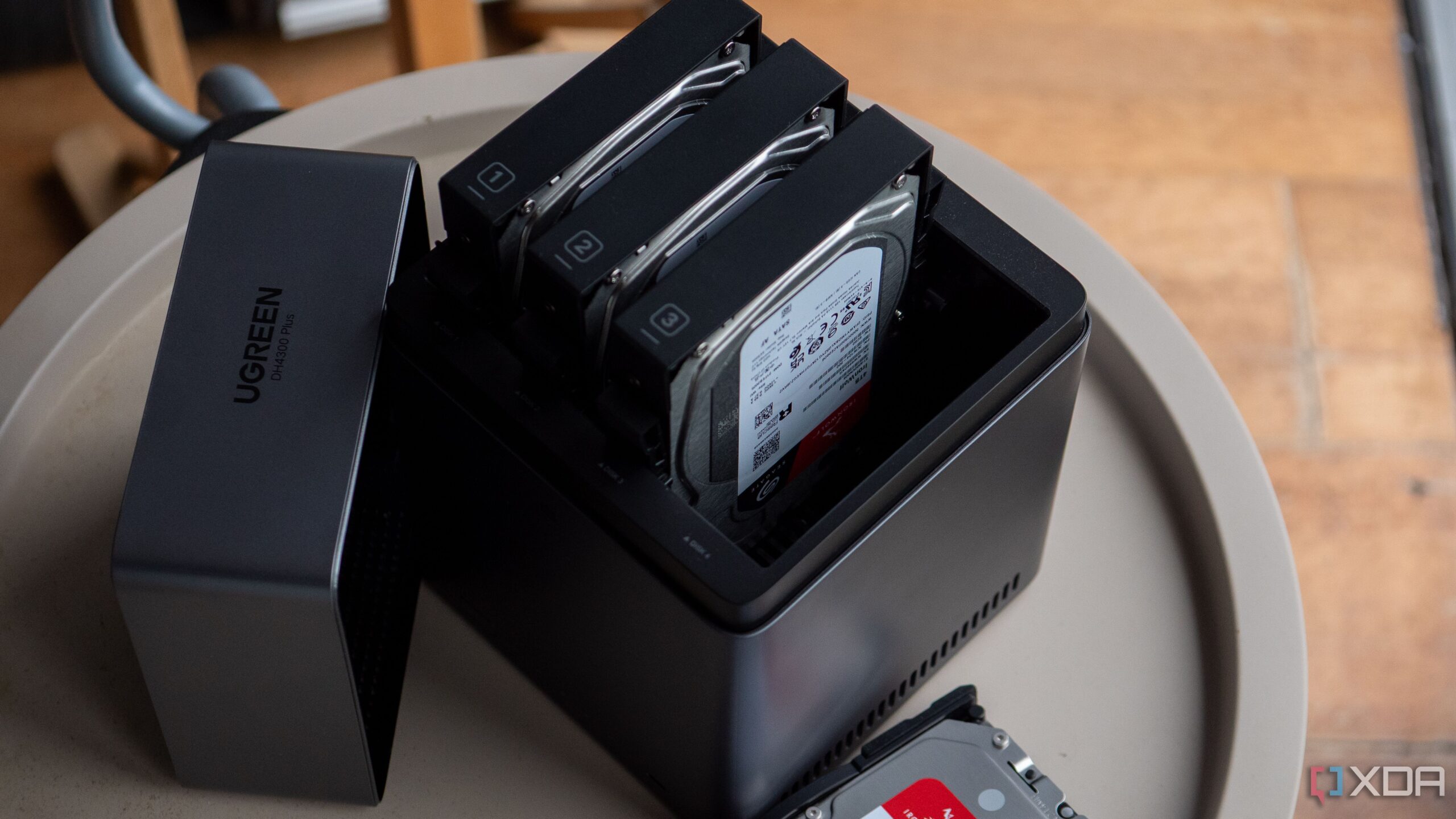Top Stories
Users Ditch Docker on NAS for Dedicated Mini PC Setup NOW

BREAKING: Home lab enthusiasts are rapidly abandoning Docker setups on NAS devices in favor of dedicated mini PCs, with many citing significant performance improvements. This trend is gaining momentum as users seek more efficient and resilient home lab configurations.
As of October 17, 2023, tech-savvy individuals are reshaping their home labs, moving Docker containers away from NAS systems. One user highlighted that using an Intel N150-based mini PC instead of a NAS has transformed their setup, leading to better performance and enhanced reliability.
The decision to switch stems from a common experience: the frustration of relying on a single point of failure. For many, running Docker directly on a NAS combines storage and compute tasks, creating vulnerabilities in their home lab environments. “Running everything from my NAS was a necessary evil,” one user explained. “But it meant both my self-hosted services and storage were at risk.”
Experts suggest that separating compute tasks from storage not only enhances performance but also safeguards against potential data loss. With the mini PC handling Docker workloads, the NAS can focus on its primary function: secure data storage and backups. This shift also alleviates the strain on NAS CPUs, which are often underpowered for demanding container workloads.
Users have reported that the transition has led to smoother operations. “My containers are no longer competing for precious compute cycles on the underwhelming NAS CPU,” another user stated. The move allows NAS devices to perform optimally without the additional burden of running Docker containers.
Another critical factor for this shift is the frustration with NAS operating systems, particularly Synology’s DSM. Many users find the interface restrictive and cumbersome for Docker management. “The new Container Manager makes what should be simple Docker usage into a mess,” one user lamented. Simplifying the process with a dedicated mini PC setup has become increasingly appealing.
Performance degradation due to Docker’s storage drivers has also driven users away from NAS setups. The overlay2 filesystem, used by Docker, leads to performance hits, especially on mechanical drives. Users are finding that running containers on SSDs in a separate mini PC improves speed and reduces wear on NAS devices.
Moreover, maintenance and upgrades present ongoing challenges for NAS users. Often, the Docker kernel versions lag, leading to compatibility issues with updated images. “Upgrading my NAS could require a different CPU architecture, which could break my Docker stack,” a user noted. The complexities of managing permissions between the NAS OS and Docker further complicate the situation.
As of now, the trend towards dedicated mini PCs for Docker workloads is expected to grow. Enthusiasts are encouraged to consider the benefits of separating their storage and compute tasks for a more resilient and efficient home lab experience.
Looking ahead, users will continue to share their experiences and insights as they optimize their setups. The community is eager to embrace these changes, as they seek to improve their home lab configurations and ensure better performance and reliability. This shift is not just a trend; it’s a response to the evolving needs of home lab users who demand more from their technology.
Stay tuned for more updates as this story develops, and explore how others are making the switch to dedicated mini PCs for Docker today!
-

 Business2 weeks ago
Business2 weeks agoForeign Inflows into Japan Stocks Surge to ¥1.34 Trillion
-

 Top Stories3 weeks ago
Top Stories3 weeks agoMarc Buoniconti’s Legacy: 40 Years Later, Lives Transformed
-

 Top Stories3 weeks ago
Top Stories3 weeks agoBOYNEXTDOOR’s Jaehyun Faces Backlash Amid BTS-TWICE Controversy
-

 Health3 weeks ago
Health3 weeks agoInnovative Surgery Restores Confidence for Breast Cancer Patients
-

 Sports1 month ago
Sports1 month agoSteve Kerr Supports Jonathan Kuminga After Ejection in Preseason Game
-

 Science2 weeks ago
Science2 weeks agoUniversity of Hawaiʻi Joins $25.6M AI Project to Monitor Disasters
-

 Science1 month ago
Science1 month agoChicago’s Viral ‘Rat Hole’ Likely Created by Squirrel, Study Reveals
-

 Entertainment1 month ago
Entertainment1 month agoZoe Saldana Advocates for James Cameron’s Avatar Documentary
-

 Lifestyle1 month ago
Lifestyle1 month agoKelsea Ballerini Launches ‘Burn the Baggage’ Candle with Ranger Station
-

 Top Stories3 weeks ago
Top Stories3 weeks agoCarson Wentz Out for Season After Shoulder Surgery: Urgent Update
-

 Politics1 month ago
Politics1 month agoDallin H. Oaks Assumes Leadership of Latter-day Saints Church
-

 Lifestyle1 month ago
Lifestyle1 month agoDua Lipa Celebrates Passing GCSE Spanish During World Tour









